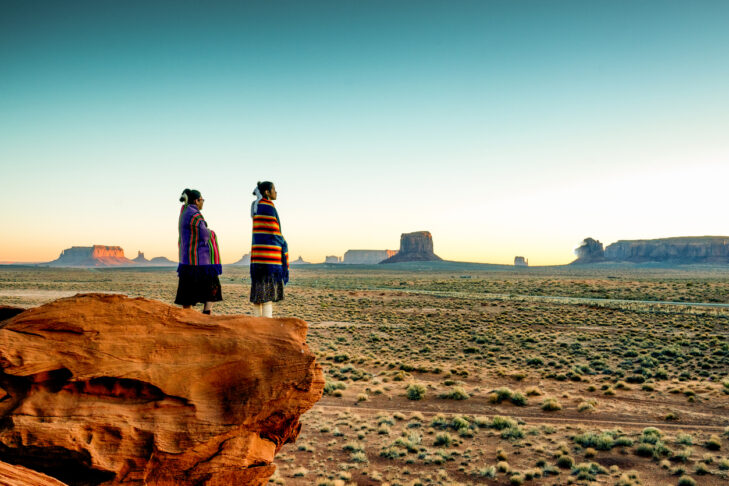To understand how a JCDS student experiences our commitment to pluralism of engagement is to peek into a classroom and observe it organically unfold. Pluralism, the lens through which we strive to teach our children to view their world, happens with intention, planfulness, creativity and mindfulness toward making connections.
Indigenous Peoples Day, still officially called Columbus Day in Massachusetts, offered our classes an opportunity to practice our “Habits of Mind and Heart,” our compass leading to a pluralistic worldview. Learning how to make room for multiple perspectives was top of mind this week as both Lower and Middle School students explored another narrative related to the traditional one associated with Columbus Day.
“On Indigenous Peoples Day, Kitat Erez (third grade) learned that the word “indigenous” means originating in a particular place, so indigenous people are people who have lived in a specific place for thousands and thousands of years. They were introduced to the many different nations in the United States and around the world, and learned that most indigenous people prefer to be called by their specific nation’s title (for example, an Algonquin woman).
“Students compared what they knew about Christopher Columbus and the indigenous people he encountered, and listed questions generated from this discussion. This article led to new information about Columbus landing on Hispaniola, where he encountered an indigenous people named the Taino. They were exposed to another narrative about enslavement, mass murder, survival and resiliency. The Taino who survived continue to live and celebrate their unique culture.
“Interested in learning more about the diverse indigenous peoples living in America today? Check out Google Earth, where you can listen to greetings in many different indigenous languages around the world. You can also check out Matika Wilbur’s blog, Project 562. Her goal is to photograph each of the 562 federally recognized nations in the U.S.”
—Miriam Hodas, third grade teacher
“Kitat Alon (fourth grade) students learned about the reasons Indigenous Peoples Day is important to celebrate and honor. We also learned that when Columbus landed on the shores of North America, there were many people already living here. We looked at this interactive map showing the many different groups of indigenous people living across North America. Students were excited to learn that indigenous peoples across the continent speak different languages and have different customs.”
—Danielle Smith, fourth grade teacher
“During seventh grade social studies, after a week-and-a-half-long exploration of indigenous history and culture, students discussed the responsibilities we have as Americans to honor the people who lived on this land prior to our European ancestors. They not only identified reasons why we should be doing this important work, but took the next step to brainstorm how we can go about doing it. This included making land acknowledgments, teaching the stories of important indigenous leaders like Chief Standing Bear, engaging with local tribes to hear their stories firsthand and respecting the land and the environment in the same way as many indigenous cultures.
“This important topic was also woven into a discussion in seventh grade advisory around civil discourse. The class discussed multiple views of Columbus Day and Indigenous Peoples Day through a close read of the White House Proclamation of Columbus Day. The students’ ability to bring their learning to the conversation certainly enriched the experience.”
—Josh Mocle, sixth grade humanities and seventh and eighth grade social sciences teacher, and Oren Kaunfer, madrich ruchani and seventh grade advisor
Shira Deener is head of school.
The School Sparks blog appears periodically by various writers among the JCDS educational team. Learn more about JCDS, Boston’s Jewish Community Day School.
This post has been contributed by a third party. The opinions, facts and any media content are presented solely by the author, and JewishBoston assumes no responsibility for them. Want to add your voice to the conversation? Publish your own post here. MORE


